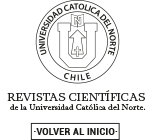Implementación del “linkage farmacéutico” en Chile
¿A qué nos obliga el Tratado Integral y Progresista de Asociación Transpacífico?
DOI:
https://doi.org/10.22199/issn.0718-9753-3731Palabras clave:
Regulación farmacéutica, tratados comerciales, CPTPPResumen
El Tratado Integral y Progresista de Asociación Transpacífico es un tratado comercial multilateral que busca dotar a la región de la Cuenca del Pacífico de un marco regulatorio común en distintas materias relacionadas con el comercio. La negociación de sus disposiciones sobre propiedad intelectual resultó particularmente polémica, especialmente aquellas relacionadas con la capacidad de los gobiernos para implementar políticas públicas tendientes a promover el acceso a medicamentos. Este trabajo analiza con detención la institución del vínculo entre registro sanitario y la patente (linkage) en el capítulo de propiedad intelectual del tratado. De esta forma, se busca dilucidar si la implementación del tratado hace necesario que nuestro país modifique su legislación en un sentido que pueda afectar la entrada de medicamentos genéricos al mercado o si, por el contrario, el Tratado Integral y Progresista de Asociación Transpacífico entrega la flexibilidad suficiente para compatibilizar la existencia de mecanismos para el incentivo de la innovación farmacéutica y el derecho de las personas a acceder a medicamentos a precios razonables.
Citas
Acuerdo transpacífico - TPP11. Ministerio de relaciones exteriores. Recuperado el 02 de junio de 2022, de https://bit.ly/3OWZobz
Attaran, A. (2004). How Do Patents and Economic Policies Affect Access To Essential Medicines In Developing Countries? Health Affairs, 23(3), 155-166. https://doi.org/bkfbqd
Beal, A., y Gedan, B. N. (5 de febrero de 2018). Chile, the Trans Pacific Partnership's unlikely savior. Global Americans. Recuperado el 31 de Agosto de 2019, de https://bit.ly/3PR6bo8
Benvenisti, E. (2015). Democracy Captured: The Mega-Regional Agreements and the Future of Global Public Law (Paper Series, N° 08/2015). GlobalTrust Working. http://dx.doi.org/10.2139/ssrn.2646882
Cárdenas Tomazic, J. L. (2011). El uso de la información no divulgada y el linkage en el TLC con EE.UU.: ¿A qué realmente se obligó el Estado de Chile y cómo ha cumplido? Revista de Derecho Económico Internacional, 1(2), 4-24. https://bit.ly/3NGlaiN
Cárdenas Tomazic, J. L. (21 de marzo de 2012). Medicamentos: Chile cumple TLC con EE.UU. Elmostrador.cl. Recuperado el 31 de agosto 2019, de https://bit.ly/3t6hmQ9
Center for Drug Evaluation and Research. (1 de enero de 2021). Generic Drug Facts. U.S. Food and Drug Administration. https://bit.ly/2lOuXMc
Chang, H.-J. (2003). Kicking away the ladder: Development strategy in historical perspective. Anthem Press.
Chung, L. (2013). AUSFTA, Korus FTA and Now TPP: Free Trade Agreements Are Now Reaching Further into Domestic Health Policies Than Ever Before. Currents: International Trade Law Journal. https://bit.ly/3Q0F7Dc
Correa, C. M. (2009). Expanding patent rights in pharmaceuticals the linkage between patents and drug registration. En N. W. Netanel (Ed.), The development agenda: global intellectual property and developing countries (pp. 247–263). Oxford Scholarship. https://doi.org/10.1093/acprof:oso/9780195342109.003.00011
Correa, C. M. (2015). Intellectual Property in the Trans-Pacific Partnership: Increasing the Barriers for the Access to Affordable Medicines (Research Paper N.° 62). South Centre. https://bit.ly/3wYs1NU
Curtis, J. M. (2012) Intellectual property rights and international trade: an overview (CIGI Papers No 3). Centre for International Governance Innovation. https://bit.ly/38tlClA
DeSanti, S., Wroblewski, M., Bye, M., Michel, S., Sarris, C., Schrag, J., Rosenfelt; N., Gorham, N., Katz, P. y Yoo, D. (2002). Generic drug entry prior to patent expiration: An FTC study. Federal Trade Commission. https://bit.ly/3mi1Woj
Dirección General de Relaciones Económicas Internacionales. (30 de abril de 2014). Declaración Pública: Chile, institucionalidad consolidada en materia de Propiedad Intelectual. Recuperado el 31 de agosto de 2019. https://bit.ly/3OO9zie
Flynn, S. M. (2010). Special 301 of the Trade Act of 1974 and Global Access to Medicines. Journal of Generic Medicines, 7(4), 309-333. https://doi.org/10.1057/jgm.2010.24
Flynn, S. M, Baker, B. Kaminski, M. y Koo, J. (2012). U.S. Proposal for an Intellectual Property Chapter in the Trans-Pacific Partnership Agreement. American University International Law Review, 28(1), 105-202. https://bit.ly/3GsQfnW
Fried, J. T., y Draper, P. (Eds.). (2016). Will the Trans-Pacific Partnership Agreement reshape the global trade and investment system? What’s in and what’s new: issues and options. World Economic Forum. https://bit.ly/3tnwYic
Furche Guajardo, C. (2013). Chile y las negociaciones del TPP. Análisis del impacto económico y político. ONG Derechos Digitales. https://bit.ly/3GyKTaU
Gallegos Aguirre, F., y Navarrete Sordo, M. (2018). El linkage: a qué se obligó Chile y cómo implementar la institución (Memoria para optar al grado de Licenciatura en Ciencias Jurídicas y Sociales). Universidad de Chile, Facultad de Derecho. https://bit.ly/3a6a87X
Gemetto, J. (3 de enero de 2018). Mercosur-EU Free Trade Agreement: A Bad Deal for the Public Domain. Communia. https://bit.ly/3t47Hd3
Glick, L. A. (2008). Guide to the United States customs and trade law: after the customs modernization act (3a ed.). Kluwer Law International.
González, M. J., Gordo Mora, E. y Manrique Simón, M. (2017). The EU's New-Generation Trade Agreements: The CETA Treaty. Boletín económico (Banco de España. Internet). 2017(3). https://bit.ly/3N2D67w
Heer, A. (s.f.). Patent linkage: Balancing patent protection and generic entry. DrugPatentWatch. https://bit.ly/3lYpfDk
Lara Gálvez, J. C. y Ruiz Gallardo, C. (2016). Acuerdos regionales de libre comercio y derechos humanos: el caso del TPP y su impacto en Chile. Anuario de Derechos Humanos, (12), 237-250. https://doi.org/10.5354/0718-2279.2016.42752
Lara Gálvez, J. C., Pérez de Acha, G. y Ruiz Gallardo, C. (2016). The impact of free trade agreements for ESCRs on the internet. En A. Finlay (Ed.), Global Information Society Watch 2016: economic, cultural and social rights and the internet (pp. 47-53). Association for Progressive Communications https://bit.ly/3awNjL8
Lechner, L. y Wüthrich, S. (2018). Seal the deal: bargaining positions, institutional design, and the duration of preferential trade agreements. International Interactions, 44(5), 833-861. https://doi.org/10.1080/03050629.2018.1500367
Leslie, J. y Peritz, L. (2015). The Design of Trade Agreements. En L. L. Martin (Ed.), The Oxford Handbook of the Political Economy of International Trade. Oxford University https://doi.org/10.1093/oxfordhb/9780199981755.013.7
Lester, S. (10 de noviembre de 2015). The rhetoric and reality of ISDS. Cato Institute. https://bit.ly/3PSe5gX
Ley N°1552. Código de Procedimiento Civil. Diario Oficial de la República de Chile, 30 de agosto de 1902. http://bcn.cl/2f6oc
Mitchell, A., Voon, T. y Whittle, D. (2014). Public health and the trans-pacific partnership agreement. Asian Journal of International Law, 5(2), 279–309. https://doi.org/10.1017/S2044251314000186
Nath Upreti, P. (2018). From TPP to CPTPP: Why intellectual property matters. Journal of intellectual property law & practice, 13(2). https://doi.org/10.1093/jiplp/jpx216
Office of the United States Trade Representative. (2017). Special Report (N° 301). https://bit.ly/3xp3GlI
O’Ryan, R. (Noviembre 2015). Efectos estimados y potenciales en la economía chilena de la entrada en vigencia del Acuerdo Transpacífico de Libre Comercio. Dirección General de Relaciones Económicas Internacionales https://bit.ly/38yvPNR
Park, S. (2008). Drug approval-patent linkage systems in the US and Canada. Journal of Korean Pharmaceutical Sciences, 38(3), 207-215. https://doi.org/10.4333/KPS.2008.38.3.207
Proyecto que Modifica Ley N° 19.039, de Propiedad Industrial, para fortalecer la protección de principios activos de medicamentos. Cámara de Diputados y Diputadas de Chile, Valparaíso, Chile, 05 de marzo de 2012. https://bit.ly/3xaNzXF
Public Knowledge. (12 de diciembre de 2017). What the European-Union Mercosur trade agreement means for copyright. Recuperado el 6 de junio de 2022, de https://bit.ly/3NZcSTB
Rahman, F. (18 de septiembre de 2018). The intellectual property deadlock: examining precipitants of departures and key turning points in Chile’s negotiations on biologics in the trans-pacific partnership. [Borrador de investigación]. 5th Global Congress of Intellectual Property and the Public Interest, Washington DC, USA.
Ramírez Zamudio, E. (2011). Acuerdo Transpacífico de Asociación Económica Estratégica (TPP). ¿Solución comercial a la tensión político-militar de la región? o ¿estrategia estadounidense para disminuir la influencia de China en Asia? Portes, 5(10), 35-65. https://bit.ly/3t6eDpO
Reid Smith, S. (2015). Potential human rights impacts of the TPP. Third World Network. https://bit.ly/3N5k0xC
Requerimiento de inconstitucionalidad presentado por un grupo de Senadores, que representan más de la cuarta parte de los miembros en ejercicio del Senado, respecto de los incisos segundo y tercero del nuevo artículo 112 B introducido por el proyecto de ley que modifica la Ley N° 19.039, de Propiedad Industrial, para fortalecer de protección de principios activos de medicamentos, contenido en el mensaje N° 414-359, Boletín N° 8183-03, Rol N° 2411-13 (Tribunal Constitucional 25 de enero de 2013). https://bit.ly/3znyxAO
Rimmer, M. (2017) The chilling effect: investor-state dispute settlement, graphic health warnings, the plain packaging of tobacco products and the trans-pacific partnership. Victoria University law and justice journal, 7(1), 77-94. https://doi.org/10.15209/vulj.v7i1.1044
Ruse-Khan, H. (2011). Protecting intellectual property rights under BITs, FTAs and TRIPS: Conflicting regimes or mutual coherence? En C. Brown y K. Miles (Eds.), Evolution in investment treaty law and arbitration (pp. 485-515). Cambridge University. https://doi.org/10.1017/CBO9781139043809.029
Schacht, W. H. y Thomas, J. R. (30 de abril de 2004). The Hatch-Waxman Act: Legislative Changes in the 108th Congress Affecting Pharmaceutical Patents (CRS Reports for Congress N° RL32377). Congressional Research Service. https://bit.ly/3tiPJDt
Schönsteiner, J., Araya, F., Soto, P. y Varas, K. (2016). Estudio de línea base sobre empresas y derecho humanos. Centro de Derechos Humanos, Universidad Diego Portales. https://bit.ly/3wVkJdX
Scotti, M. (5 de noviembre de 2017). As TPP rises from the ashes, will Canada want in? Global News. https://bit.ly/3x14vB6
Seung Joo, J. (2013). Patent-Drug Approval Linkage in Korea under Korea-U.S. FTA-Based on Comparative Study on U.S. Hatch-Waxman Act and Canadian Patented Medicines (Notice of Compliance) Regulation (Master Thesis). Munich Intellectual Property Law Center. https://bit.ly/3NKVyS8
Slowakische Republik contra Achmea BV, ECLI:EU:C:2018:158 (Tribunal de Justicia (Gran Sala) 6 de marzo de 2018). https://bit.ly/394377S
Smith Reid, S. (9 de octubre de 2015). Ambiguity leads to fallacy: biologics exclusivity in the trans-pacific partnership. Public citizen. https://bit.ly/393kuFC
Subsecretaría de Relaciones Económicas Internacionales de Chile. (11 de noviembre de 2017). Trans-Pacific Partnership Ministerial Statement. Ministerio de Relaciones Exteriores. https://bit.ly/3xbGu9f
Subsecretaría de Relaciones Económicas Internacionales de Chile. (s.f.a). Acuerdos comerciales. Ministerio de relaciones exteriores. Recuperado el 06 de junio de 2022. https://bit.ly/3NYq8qX
Subsecretaría de Relaciones Económicas Internacionales de Chile. (s.f.b). Unión Europea Modernización del acuerdo de Asociación. Ministerio de relaciones exteriores. Recuperado el 06 de junio de 2022, de https://bit.ly/3Pm3kCv
Subsecretaría de Relaciones Económicas Internacionales de Chile. (s.f.c). Cuarto Adjunto TPP. Ministerio de relaciones exteriores. https://bit.ly/3NouqHT
Tobar Aravena, T. (s.f.). Líneas Rojas en TPP (Minuta). Ministerio de Salud.
Tratado de Libre Comercio (Chile-Estados Unidos). 1 de enero de 2004. https://bit.ly/3NZq0bi
Tratado de Libre Comercio (Perú-Estados Unidos). 01 de febrero de 2009. https://bit.ly/3xdJrXa
Tratado Libre Comercio Competencia Contraloría, N° 61.817 (Contraloría General de la República 26 de diciembre 2006).
Van Harten, G. y Malysheuski, P. (2016). Who has benefited financially from investment treaty arbitration? An evaluation of the size and wealth of claimants. Osgoode Legal Studies Research Paper, 12(3), 135. http://dx.doi.org/10.2139/ssrn.2713876
Wehner, L. (2011). Chile’s rush to free trade agreements. Revista de ciencia política (Santiago), 31(2), 207-226. https://bit.ly/3x0eTcu
WikiLeaks. (13 de noviembre de 2013). Acuerdo Secreto de la Asociación Trans-Pacífico (TPP). https://wikileaks.org/tpp/index-es.html
Ytokazu, G. (2017). The Trans-Pacific partnership: A new role of the United States of America and Japan in the Asia-Pacific. SSRN. http://dx.doi.org/10.2139/ssrn.2934300
Zaliasnik, G. (6 de marzo de 2012) Medicamentos: el paso en falso de Chile. cooperativa.cl. https://bit.ly/3t5tcKc
de Zayas, A-M. (14 de julio de 2015 ). Informe del Experto Independiente sobre la promoción de un orden internacional democrático y equitativo (Informe N° A/HRC/30/44). Asamblea General de las Naciones Unidas. https://bit.ly/3z5XEHY
Publicado
Cómo citar
Número
Sección
Derechos de autor 2022 Pablo Agustín Viollier Bonvin, Sergio Valenzuela Pulgar

Esta obra está bajo una licencia internacional Creative Commons Atribución 4.0.
Aquellos autores/as que tengan publicaciones con esta revista, aceptan los términos siguientes:
- Los autores/as conservarán sus derechos de autor y garantizarán a la revista el derecho de primera publicación de su obra, el cuál estará simultáneamente sujeto a la Licencia de reconocimiento de Creative Commons que permite a terceros compartir la obra siempre que se indique su autor y su primera publicación esta revista.
- Los autores/as podrán adoptar otros acuerdos de licencia no exclusiva de distribución de la versión de la obra publicada (p. ej.: depositarla en un archivo telemático institucional o publicarla en un volumen monográfico) siempre que se indique la publicación inicial en esta revista.
- Se permite y recomienda a los autores/as difundir su obra a través de Internet (p. ej.: en archivos telemáticos institucionales o en su página web) antes y durante el proceso de envío, lo cual puede producir intercambios interesantes y aumentar las citas de la obra publicada. (Véase El efecto del acceso abierto)





_(1).png)











